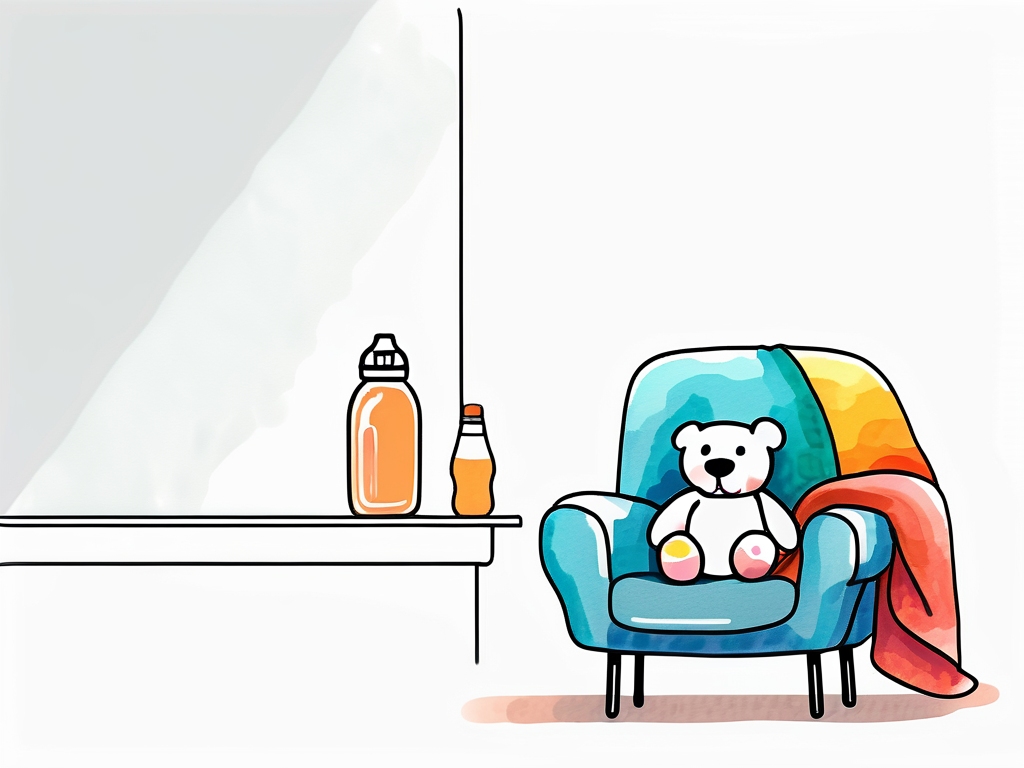Sending your child to daycare can be both an exciting and nerve-wracking experience. In order to help ease the transition and ensure that your child feels comfortable and secure in their new environment, it’s important to take some time to prepare. By understanding your child’s needs, establishing a routine, building a relationship with the daycare, preparing for separation, and ensuring your child’s comfort, you can make the daycare experience a positive one for both you and your child.
Understanding Your Child’s Needs
Before sending your child to daycare, it’s important to take the time to understand their individual needs. Every child is unique, and what works for one may not work for another. By taking the time to understand your child’s emotional and physical needs, you can better support them during their time at daycare.

Understanding your child’s needs goes beyond just the basics. It involves delving into their personality, preferences, and quirks that make them who they are. By observing how your child interacts with others, what activities they enjoy, and how they express themselves, you can gain valuable insights into how to best support them in a daycare setting.
Emotional Needs of Your Child
Children experience a wide range of emotions when starting daycare. Some may feel excited, while others may feel anxious or sad about being away from their parents. It’s important to validate your child’s emotions and provide them with the su pport they need. Ensure that you communicate with the daycare staff about your child’s emotional needs and any strategies that have worked well in the past.
Creating a sense of security and attachment is crucial for meeting your child’s emotional needs. Establishing a consistent drop-off routine, providing comfort items from home, and fostering positive relationships with daycare providers can help ease your child’s transition and promote a sense of emotional well-being.
Physical Needs of Your Child
Aside from emotional needs, it’s also important to consider your child’s physical needs. Make sure to communicate any dietary restrictions or allergies to the daycare staff. Additionally, provide them with any necessary medication or instructions to ensure your child’s safety and well-being.
Ensuring that your child’s physical needs are met at daycare involves more than just providing the essentials. It also means considering factors such as adequate rest, hydration, and opportunities for physical activity. Collaborating with daycare staff to create a healthy and balanced routine can contribute to your child’s overall well-being and development.
Establishing a Routine
Children thrive on routine, and establishing a consistent schedule can help them feel secure and comfortable in their daycare environment. Predictability and structure provide a sense of stability, allowing children to know what to expect and feel more at ease in their surroundings.

Consistency in routines also helps children develop important life skills such as time management, organization, and self-discipline. By following a set schedule each day, children learn to prioritize tasks, manage their time effectively, and take responsibility for their actions.
Creating a Morning Routine
Start the day off on the right foot by creating a morning routine. This can help your child transition to daycare smoothly. Make sure to allocate enough time for breakfast, getting dressed, and any other activities your child enjoys before leaving for daycare. This will help reduce morning rush and stress.
Encouraging your child to participate in the morning routine by allowing them to make simple choices, such as picking out their clothes or deciding what to have for breakfast, can foster independence and decision-making skills. Involving your child in the morning routine also promotes a sense of ownership and empowerment, helping them feel more confident and capable.
Setting a Bedtime Routine
A good night’s sleep is essential for your child’s well-being. Establish a bedtime routine that includes relaxing activities such as a bath, storytime, or cuddling. This routine will not only help your child wind down after a busy day at daycare but also ensure they get enough rest for the following day.
Creating a calming bedtime environment by dimming the lights, playing soft music, or using essential oils can signal to your child that it’s time to unwind and prepare for sleep. Consistency is key in bedtime routines, as following the same sequence of activities each night helps signal to your child’s body that it’s time to rest, promoting better sleep quality and overall well-being.
Building a Relationship with the Daycare
Building a strong relationship with the daycare staff is essential in ensuring that your child feels safe and supported at daycare. When you establish a positive connection with the caregivers, it creates a sense of trust and partnership that benefits your child’s overall well-being.
One way to enhance your relationship with the daycare is by showing appreciation for the hard work and dedication of the staff. A simple thank you or a small token of gratitude can go a long way in fostering a positive atmosphere and showing that you value the care they provide for your child.
Communicating with Daycare Staff
Effective communication with the daycare staff is key. Share important information about your child’s routine, likes, dislikes, and any specific instructions. Provide updates regularly, and ask for feedback from the daycare staff on your child’s progress and behavior. Open and honest communication helps in addressing any concerns or issues promptly, ensuring a collaborative approach to your child’s care.
Furthermore, building a rapport with the daycare staff beyond just discussing your child can create a more personal connection. Taking the time to inquire about their day or sharing a funny anecdote can help in building a friendly and supportive relationship with the caregivers.
Participating in Daycare Activities
Participating in daycare activities can help strengthen the bond between you, your child, and the daycare. Attend parent-teacher meetings, volunteer for field trips, and engage in activities whenever possible. This active involvement not only shows your child that you are interested in their daycare experience but also allows you to collaborate with the staff in creating a nurturing environment for your child.
Moreover, engaging in activities alongside your child at the daycare can provide valuable insights into their interests and social interactions. It offers a firsthand perspective on how your child engages with their peers, helping you to support their social development and address any challenges they may face in a proactive manner.
Preparing for Separation
Saying goodbye to your child at daycare can be challenging, but there are strategies you can use to ease the separation process.
It’s important to remember that separation anxiety is a normal part of a child’s development. By implementing some thoughtful techniques, you can help your child navigate this transition with more ease and confidence.
Discussing Daycare with Your Child
Talk to your child about daycare before they start. Explain what daycare is, where they will be going, and who will be taking care of them. Answer their questions honestly and provide reassurance that you will always come back to pick them up.
Consider creating a visual schedule or a social story about daycare to help your child understand what to expect. This can be a fun and interactive way to introduce the concept of daycare and alleviate any uncertainties your child may have.
Gradual Introduction to Daycare
If possible, have a gradual introduction to daycare. Start with shorter days and gradually increase the duration. This will allow your child to become familiar with the environment and slowly adjust to being away from home.
During the gradual introduction phase, encourage your child to bring a comfort item from home, such as a favorite toy or blanket. Having a familiar object can provide a sense of security and comfort during the initial days at daycare, making the separation process a bit smoother for your child.
Ensuring Your Child’s Comfort
Lastly, ensuring your child’s comfort is crucial in making their daycare experience a positive one.

When it comes to ensuring your child’s comfort at daycare, it’s essential to consider all aspects of their well-being. From familiar items to drop-off routines, every detail plays a role in how your child feels during their time away from home.
Familiar Items to Bring to Daycare
Allow your child to bring a familiar item from home, such as a stuffed animal, a favorite toy, or a cozy blanket. These items can provide them with a sense of security and familiarity in a new environment. Having a piece of home with them can offer comfort and reassurance throughout the day.
Additionally, familiar items can serve as a bridge between home and daycare, helping your child feel connected to their family while exploring new surroundings and making new friends.
Comforting Your Child During Drop-off
During drop-off, your child may experience a range of emotions, from excitement to anxiety. It’s important to approach this transition with patience and understanding. Take the time to comfort your child, validate their feelings, and offer reassurance.
Establishing a consistent drop-off routine can also help ease the transition. Create a goodbye ritual that involves hugs, kisses, and positive affirmations. By staying calm and composed, you can help your child feel secure and confident as they begin their day at daycare.
Remember, building a strong foundation of trust and communication with your child is key to ensuring their comfort and happiness in any new environment. By acknowledging their emotions, providing familiar items, and offering unwavering support, you can help your child navigate the exciting world of daycare with confidence and ease.
By taking these proactive steps, you can help prepare your child for daycare and ensure that their transition is a smooth and positive one. Remember, every child is different, so be patient and understanding as they adjust to their new routine and environment. With time, patience, and open communication, you and your child can thrive in the daycare setting.










